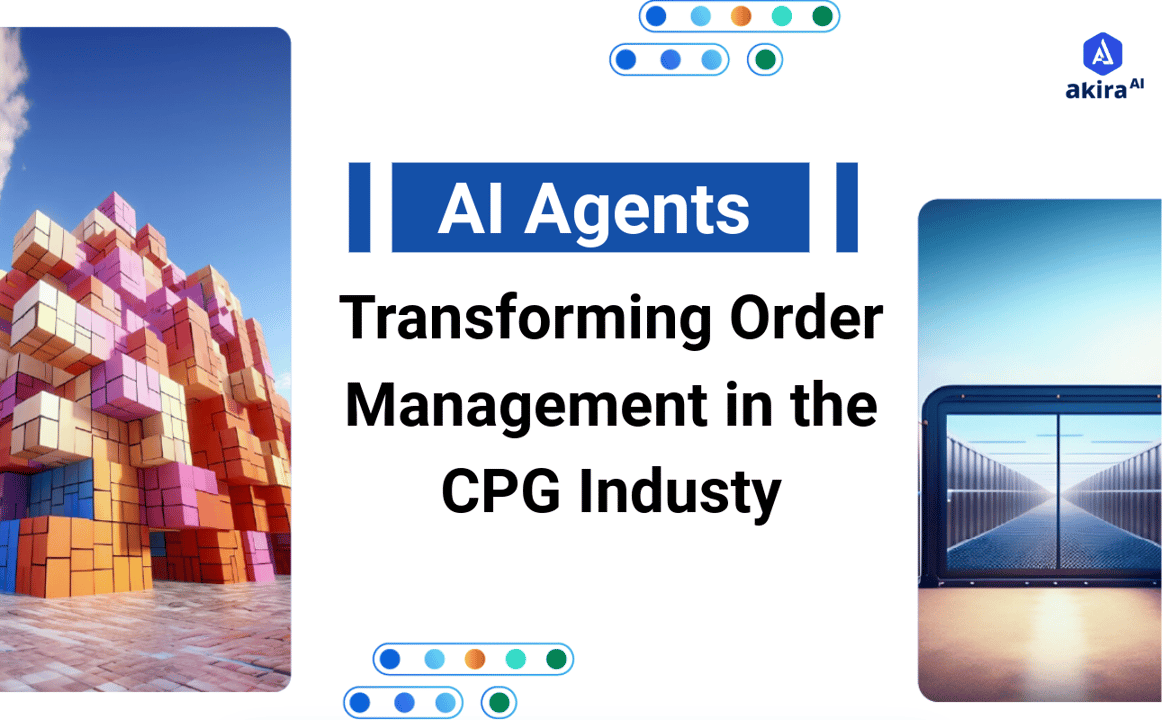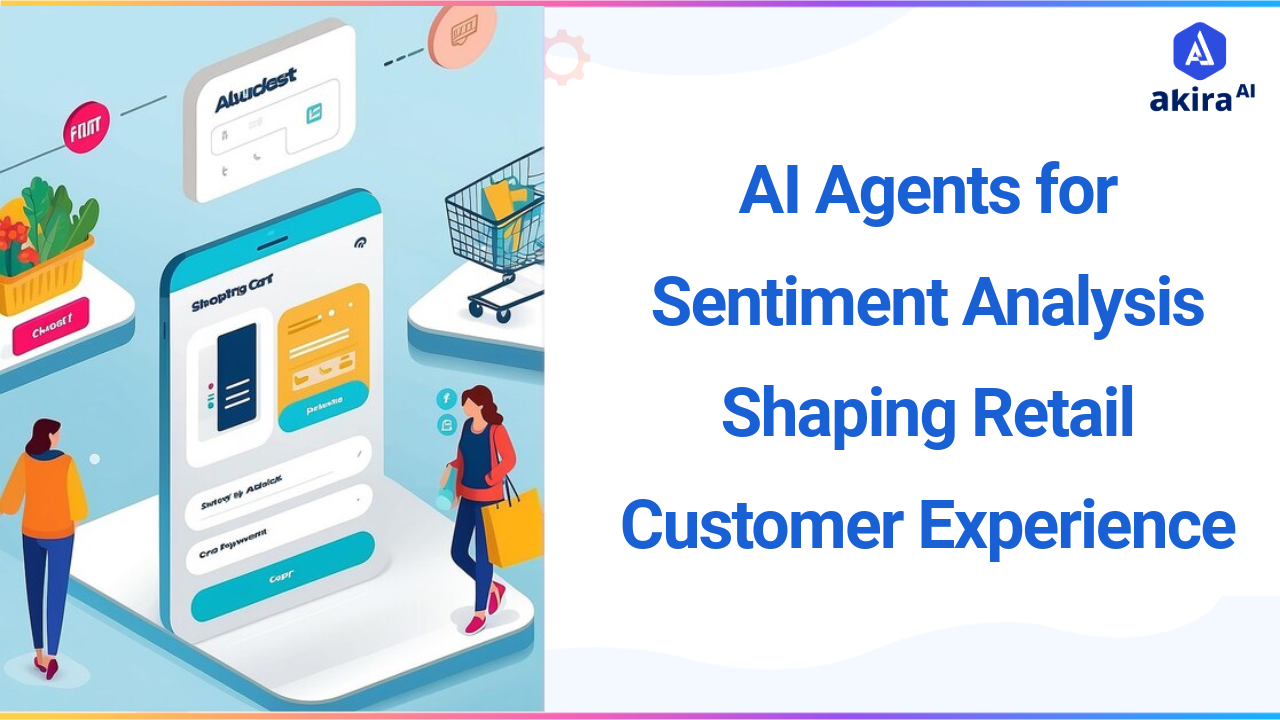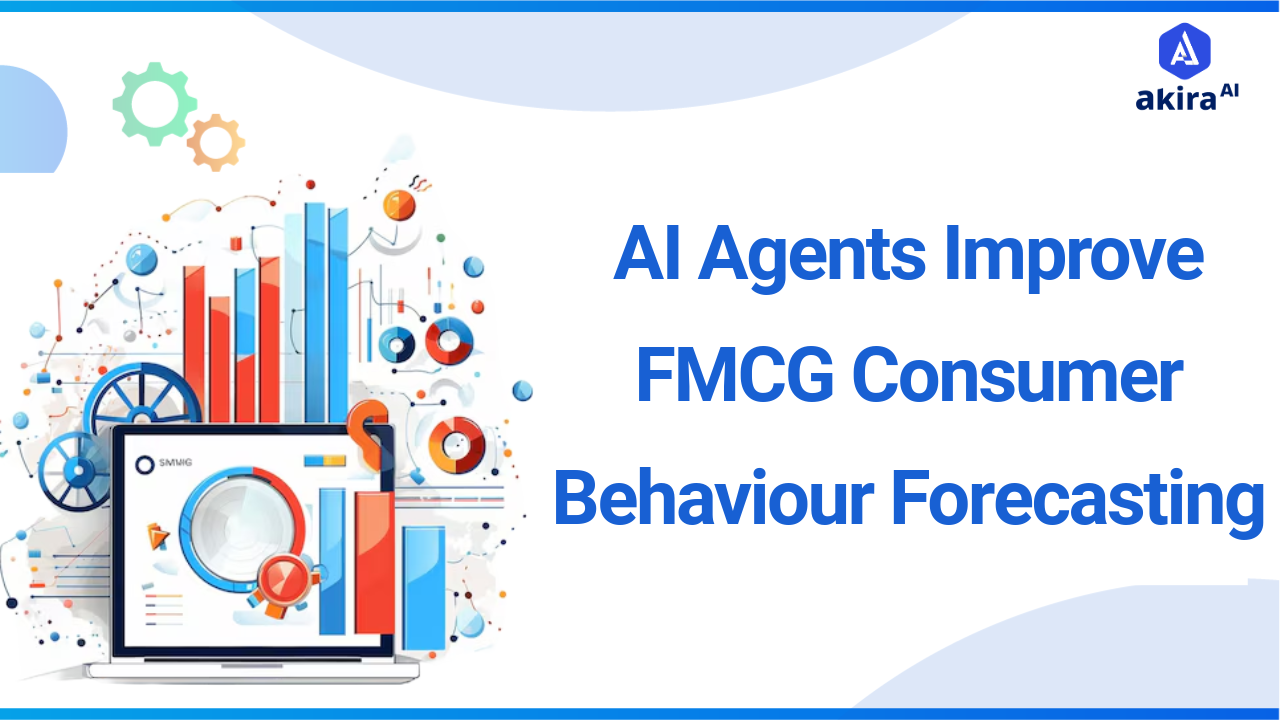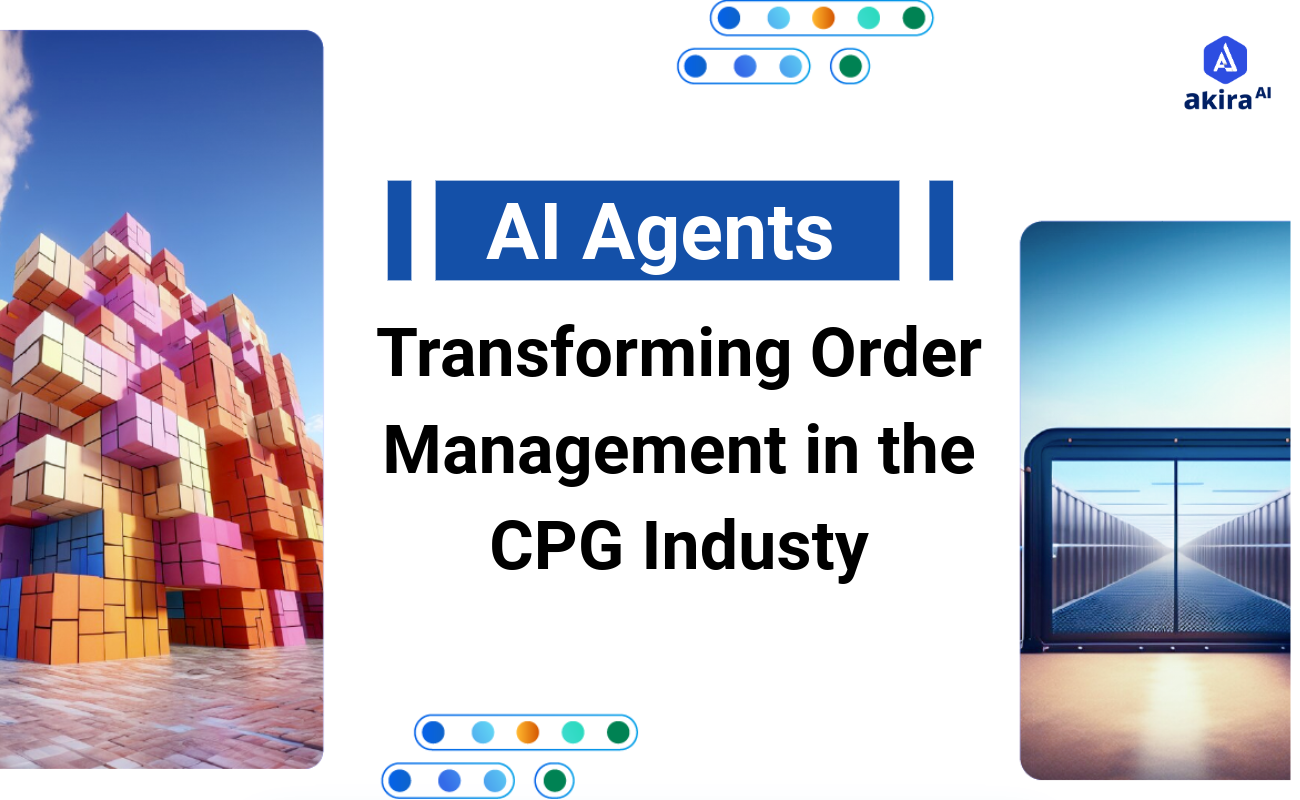Key Insights
Integrating AI agents into order management results in remarkable improvements in operational efficiency. These systems automate routine tasks, allowing businesses to process orders more quickly. With fewer mistakes, companies can focus on strategic initiatives rather than mundane operations. This shift enhances overall productivity.

What happens when automation meets order management in the CPG industry? The result is a transformation in how businesses handle daily operations, leading to faster processing, fewer errors, and a significant boost in customer satisfaction. AI agents are at the forefront of this shift, providing businesses with the tools to automate key processes such as inventory management, order processing, and customer service. By leveraging intelligent systems, companies can optimize workflows, enhance accuracy, and scale more efficiently. In this blog, we’ll explore how AI-powered solutions are revolutionizing order management in the CPG industry and why companies that embrace these technologies will be better positioned to thrive in an increasingly competitive, fast-moving marketplace.
What is Order Management?
Order management is a process through which the organization takes orders, monitors, and fully executes them. In the consumer-packaged goods industry, where large volumes of products are distributed to retailers, wholesalers, and directly to consumers, order management is a complex task that involves multiple stages, from inventory control to final delivery. Tasks involved in order processing in the CPG sector comprise dealing with different customer inquiries, inventory control, record updates, and appropriate shipping and receiving. As the orders and shipments become more frequent and detailed, manual systems create issues related to different areas, such as error rates and delayed delivery, making agentic AI necessary.
A Brief Overview of Order Management in the Packaged Goods Industry
Traditionally, order management activities within the CPG industry were performed or performed with the help of outdated order management systems (OMS), which create various problems connected with delays, mistakes, and the absence of unification throughout the processes.
Consumer packaged products are one of those business industries where AI agents can now be used to adapt these processes. These agents can help an organization monitor stocks, forecast when an item is going to run out, and also enable an organization to route orders automatically. They can also be used to minimize operational expenses, make sound decisions, and improve the customer experience. As these agents evolve, their ability to manage and optimize the entire order management and processing cycle is transforming how companies in the consumer-packaged goods industry operate.
Traditional vs. Agentic AI-based Order Management
|
Aspect |
Traditional Order Management |
Agentic AI-based Order Management |
|
Order Processing |
Manual order capture, data entry, and tracking. Prone to errors. |
Automated data capture, AI-assisted tracking with real-time updates. |
|
Accuracy |
High likelihood of human errors in order entry and processing. |
AI algorithms improve accuracy, minimizing errors. |
|
Efficiency |
Time-consuming with delays in fulfilling orders. |
Streamlined order processing, and faster fulfillment. |
|
Customer Experience |
Slow response time to customer inquiries. |
AI agents can provide quick, accurate responses to customer queries. |
|
Integration with Other Systems |
Disconnected systems for inventory, shipping, and sales data. |
Seamless integration across the supply chain through AI agents. |
|
Cost |
High operational costs due to manual intervention. |
Reduction in operational costs by automating key processes. |
Akira AI Multi-agent in Action
Akira AI leverages a multi-agent system that automates various stages of order management and processing. The central part of Akira’s system is a master orchestrator responsible for controlling the overall action of AI agents. Here is an overview of how Akira AI utilizes these agents in its order management process:
-
Master Orchestrator: The master orchestrator acts as the central control system, and its main function is to interrelate different agents and guarantee that they are synchronized. It has to process the received orders and decide what kind of chain of actions has to be launched to complete the order.
-
Inventory Management Agent: This agent monitors real-time stock levels, tracks product movements, and triggers replenishment requests when inventory is running low. It ensures that orders are fulfilled accurately and on time.
-
Shipping & Logistics Agent: The shipping agent determines the most efficient routes, chooses the contractors, and controls the freight. It is able to predict possible delays and control the schedules where necessary, in a more dynamic manner.
-
Customer Interaction Agent: This agent updates customers on the status of their orders, can search for an order on a customer’s behalf, and can also carry out returns and exchanges independently.
-
Payment Processing Agent: This AI agent is accountable for processing transactions with a high level of security and quick completion. It checks for payment authenticity and processes refunds and suspicious transactions.
-
Analytics Agent: The analytics agent analyzes customer data, purchasing trends, and order patterns. It provides actionable insights to help improve business strategies.
Applications of Order Management in the Packaged Goods Industry
AI agents have numerous applications within order management for the consumer-packaged goods industry. Some prominent use cases include:
-
Automated Order Processing - These agents can automatically process orders from multiple channels, including online orders, retail orders, and direct-to-consumer shipments. This reduces the need for human intervention, cuts down on errors, and speeds up order fulfillment.
-
Inventory Management - One of the advantages that can be anticipated from the usage of AI includes the ability to keep a record of real-time inventory quantities and order restocking replenishments when overall inventory is running low. This eliminates cases of stockouts so that when customers make an order, the products will always be available.
-
Demand Forecasting - Autonomous agents can analyze past sales data and predict future demand for various products. This helps businesses adjust their order management systems to ensure adequate stock and prevent overstocking.
-
Customer Service Automation - AI-powered customer interaction agents can handle a wide range of customer inquiries, including order status updates, returns processing, and shipment tracking. This improves the customer experience and reduces the workload on customer service teams.
-
Returns Management - These agents can manage the entire returns process, from initiating returns to processing refunds and exchanges. This automates a traditionally manual and time-consuming process, enhancing operational efficiency.
Operational Benefits of AI Agents for Order Management
The operational benefits of integrating AI agents into order management systems are vast. Here are some of the key advantages:
-
Increased Operational Efficiency - By automating routine tasks like order processing, inventory management, and order tracking, these agents significantly increase operational efficiency. This allows businesses to process orders more quickly, leading to faster fulfillment and delivery.
-
Higher Order Accuracy - Autonomous agents eliminate human errors in order processing by automating data entry, inventory checks, and order fulfillment. This reduces costly mistakes and improves overall order accuracy.
-
Cost Reduction Benefits - The automation of key processes reduces the need for manual intervention, lowering labor costs and reducing overhead. Businesses also save on the cost of delayed or incorrect orders due to errors.
-
Boosted Customer Satisfaction - With features such as improved, rapid order tracking and self-organized customer response, customers do not have to be as involved in their bookings; thus, they are more likely to use the service again and promote the brand.
-
Scalable Business Operations - These agents can handle a large volume of orders without compromising on efficiency. This makes it easier for businesses to scale up their operations and meet the increasing demand for products, especially during peak seasons.
Technologies Transforming Order Management
Several technologies are driving the transformation of order management in the CPG industry, including:
-
Machine Learning Algorithms use previous data to forecast demand and optimize inventory management, minimizing stockouts and overstocking.
-
Natural Language Processing (NLP) furthers customer satisfaction by providing automated instant replies for order inquiries and additional support.
-
Cloud Computing provides real-time access to data across teams, enabling better collaboration and faster decision-making in order management.
-
Blockchain ensures secure and transparent order tracking, improving traceability and reducing fraud throughout the supply chain.
The Future of Order Management in the Packaged Goods Industry
Looking at the current and future evolution of AI technology, the consumer-packed goods industry looks to have a promising future in order management. Here are some key trends to watch:
-
Enhanced Automation Capabilities: AI agents will perform more sophisticated jobs, hence assuming the tasks that earlier required human involvement.
-
Smarter AI Functionality: These agents will become more intelligent and capable of handling a wider variety of tasks, improving decision-making.
-
Improved System Connectivity: Systems will integrate further to offer supply chain customers access to updated information at every point in their interactions with the chain.
-
Personalized Customer Experience: This technology will ensure that consumers are served better, increasing its usage among the population through organizations.
Conclusion: AI Agents for Order Management
If you are fed up with numerous orders, stockouts, and inventory inconsistency, it might be time to call in the pros—AI agents. These smart and innovative tools are meant to enhance key processes of order management and, at the same time, minimize possible errors that customers might experience in doing business with a company. Given such processes as order tracking, updates on inventory, and customer relations handled by these agents, businesses will close up higher-level exercises, including extending product offerings, to enhance customer relations. The future of order management is here, and it’s powered by agentic AI. Let AI agents take care of the heavy lifting while you scale your business and adapt to a rapidly evolving market.


